Mamuka Mamulashvili, Commander of the Georgian Legion: Ukraine is the only country to take on the challenge of the barbaric terrorist state that is Russia
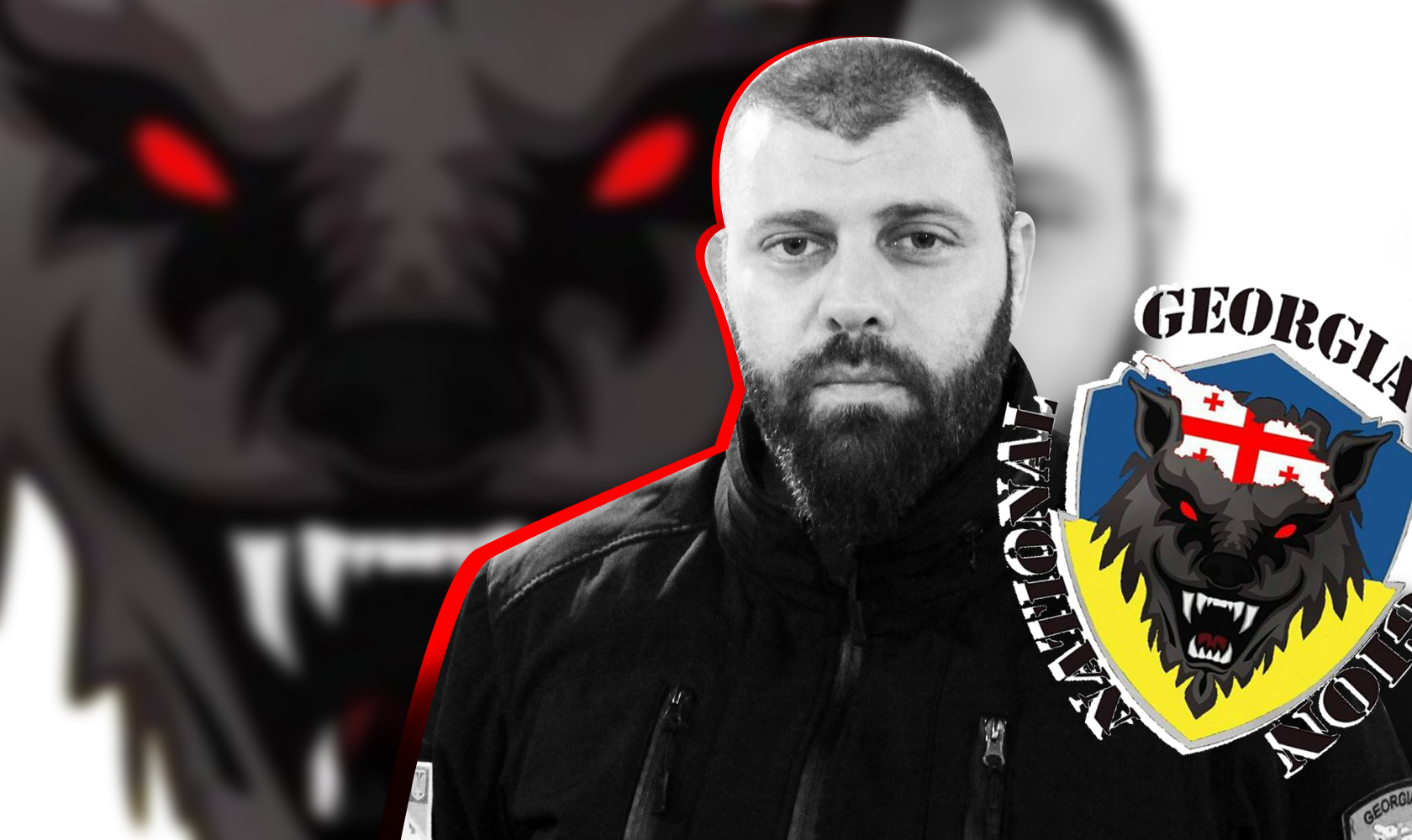
Relations between the Ukrainian and Georgian people have always been sincere and open. Since the collapse of the USSR, this warmth has become even more tangible and has taken on an international dimension.
However, the countries and people have been united not only by mutual friendship in many ways, but also by their common problems. The biggest one is Moscow. About 20% of the territories of both Ukraine and Georgia are currently occupied by Russia.
At every stage of the development of the Russian-Georgian, and later the Russian-Ukrainian wars, the international community has long been swayed by waves of Kremlin propaganda, which hypnotised the West with its incantations of "Not everything is so obvious."
But for many Ukrainians and Georgians, everything has been obvious for a long time. So it is not at all surprising that many Georgian volunteers have decided to help the Ukrainians fight against Russia, starting from literally the first few days of Russia's attack on Ukraine in 2014.
A separate Georgian National Legion was established, which took part in hostilities even during the first intense phase of the war in Donbas in 2014-2015.
In 2016, the Georgian National Legion became part of the Armed Forces of Ukraine. This was the first time in Ukraine’s history that foreigners were officially accepted into the Armed Forces of Ukraine.
Since 24 February 2022, the Legion has had even more volunteers. And the geography of their origins is not limited to Georgia.
Ukrainska Pravda met with Mamuka Mamulashvili, the commander of the Georgian Legion, and asked him about how the Legion was established, how citizens of different countries around the world work together within it, what horror stories are spread by Russian propaganda to demonise the fighters, and why Ukraine’s victory will be a victory for Georgia.
"Many Ukrainians died defending Georgia’s sovereignty. It was a matter of principle for us to come and help"
- It’s very nice to see you in Kyiv. We hear a lot about the Georgian Legion, and about you as the person who heads it. First of all, I would like you to tell us a little about how you ended up in Ukraine.
- I came to Ukraine in 2014, and the Georgian Legion pretty much began to exist in 2014. It was fundamentally important for us to help Ukraine when we felt that a war would begin. Several [Georgian] officers arrived who helped train the Ukrainians and they have taken part in the hostilities since 2014, since the beginning of the war.
- Why did you decide to fight for Ukraine and in Ukraine?
- Ukraine is a strategic partner of Georgia. During the first Russian aggression after the collapse of the USSR in Georgia, Ukraine was the only country that openly helped Georgia and sent volunteers, many of whom died defending Georgia's sovereignty. So it was a matter of principle for us to come and help.
- I know that you took part in the Abkhazian war, and there is a very interesting and complex story connected with it: you spent some time in captivity. Can you tell us a little about that?
- That was in the 1990s, when Russia attacked Georgia. Events were developing the same way as in Ukraine - the development of separatism followed by the beginning of a so-called hybrid war. In my opinion, it was just an open war against Georgia, which Georgia unfortunately lost in the 90s.
My father was a military general who was serving in the Georgian army at the time, and he took me to war at the age of 14. I practically grew up on a military base, and at the age of 14 I was already, one might say, a soldier. He took me to combat action.
A year after the war began, we were captured together. I was in captivity for about three months. It was a very difficult time in my life.
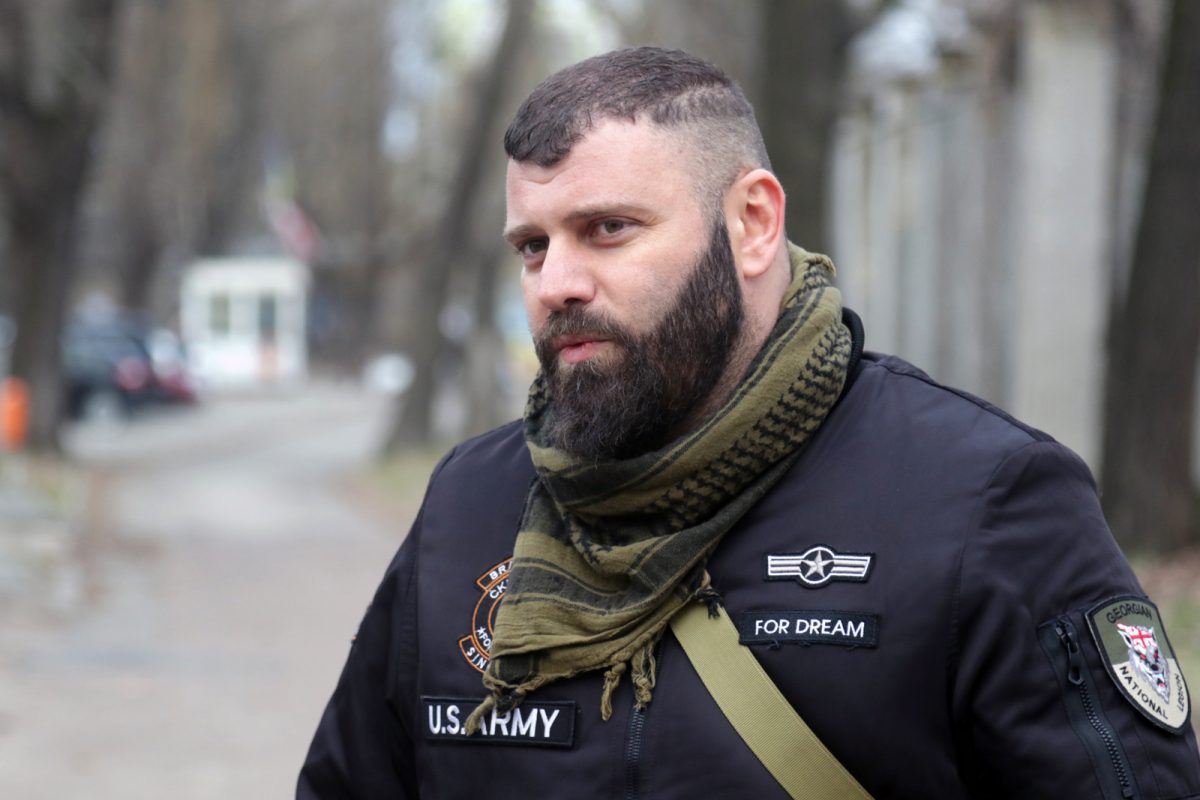
- So when you were captured, you were 15?
- I turned 15 in captivity, as I recall. And then I began to understand why it is necessary to fight against Russia. It was precisely the time when my consciousness was developing and I began to understand the world.
And I understood clearly that Russia was an enemy. I have been in practically a permanent mode of hostilities against Russia ever since.
- But at the same time you studied - in France, for example.
- Yes. There was a time when I began studying to be a diplomat in Paris. I was looking for an alternative method of war. That is why I became interested in diplomacy. And, as always, I didn't need it, because we can’t use diplomatic language with Russia at all.
We couldn't do it in Georgia and we can't do it in Ukraine. So, diplomacy took a back seat, and we had to do what we’re doing, and that is war.
- When I talk to Georgians who come to Ukraine, they mention the war that started on 8 August 2008 as a reason why they are here. Where were you at that time? What impression did that war make on you?
- You know, I would say that the wars before 2008 affected me more than the one in 2008. Because it was a very short war, and there were peace agreements with Russia, which Russia still does not adhere to. But that was the beginning of modern wars on the territory of the former Soviet Union. It was an attempt to start the "reunification of the USSR".
There was no penalty for Russia in 2008, so its ambitions went further. But Georgia said repeatedly in 2008 that Ukraine would be next.
- And did you think so too?
- Yes. It was quite clear that Russia was trying to "unify" the Soviet Union: this was one of the attempts at so-called "training" in Georgia, which caused huge casualties, primarily among the civilian population. The same as in Ukraine.
We are losing a huge number of civilians today. So Russia reminded us once again in 2008 that it has ambitions for Georgia, and it will try to win over Georgia by any means.
"We were the first unit to join the Ukrainian army"
- And where were you in 2014, when the war began?
- We were already here in April 2014. We were in the Luhansk region, training one of the militia battalions there. As far as I remember, it was either "Kyivshchyna" [the Kyivshchyna police battalion was formed in Kyiv Oblast] or "Myrotvorets" [the Myrotvorets (Peacekeeper) police battalion was also formed in Kyiv Oblast]. We began to take part in hostilities practically as soon as we arrived.
- Where did these hostilities take place?
- Basically, we were on the Luhansk front line from the very beginning.
- How did the Georgian Legion grow? Who joined it? How did you find people? And what was your work mainly focused on?
- The Georgian Legion began to recruit more personnel after it officially became part of the Ukrainian army in 2016, when the law "On the integration of foreigners into the Ukrainian army" was signed.
We were the first unit to join the Ukrainian army. As soon as the contract was signed, guys from different countries started joining us. Professional officers, the first three people, joined us from the United States. A higher level of personnel started arriving from 2016 onwards. Today, the Georgian Legion is the largest foreign unit in the Ukrainian army.
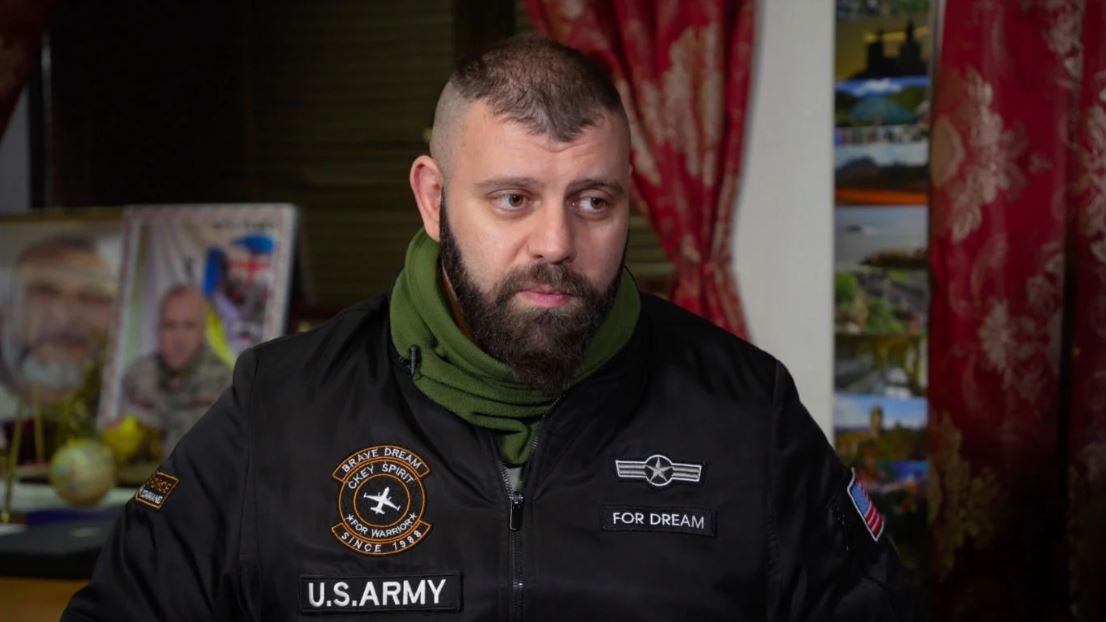
- What countries are these people from?
- There are people from 32 different countries. I won’t list them, but the majority are Georgians, then UK and US citizens. Then there are guys from various countries around the world.
- How do Georgians and representatives of other countries explain why they are fighting on the side of Ukraine?
- I talk to each fighter personally during their interview when they join the Georgian Legion, because I am interested in their motivation for coming here.
First of all, I do this to rule out people with radical views: Nazis, racists, and people like that. That has never been acceptable in the Georgian Legion, and we’ve tried to weed out that type of person.
The main motivation is different for everyone and very individual in different countries. One of the reasons Americans give is the fact that the United States is one of the countries that signed the Budapest Memorandum, and many of them think that the US has not done as much as it should have done for Ukraine. So what motivates them is that they are the real face of the US. They want to show Ukraine that they are standing together [with Ukraine]. Some US citizens [in the Legion] have been killed.
So this is how another stage of the Georgian Legion began - with the growth and acceptance of folks from different countries of the world. The idea was that we had to show how many countries support Ukraine. If there was even one representative from each country, that would be quite a lot of fighters.
- How has the situation changed during the full-scale invasion? I mean, has there been an increase in the number of people who want to join? How do you do the selection process now?
- Of course, the influx of the bulk of personnel took place after 24 February.
Recruiting foreigners became so difficult that we simply stopped for a while once we had recruited the optimal number needed for the Georgian Legion.
There was a huge number of highly motivated people who came to help Ukraine. We selected based on professional criteria, and even now we only accept fighters with combat experience. Not army experience, but combat - people who don’t need to undergo preliminary training to participate in combat operations.
- In which countries had these people gained their combat experience?
- The guys who came from Western countries mainly got their combat experience from missions in Afghanistan and Iraq, etc. The Georgians are the ones who’ve been through several wars against Russia specifically and have a lot of experience in war against Russia. That's why today the majority [in the Georgian Legion] are still Georgians.
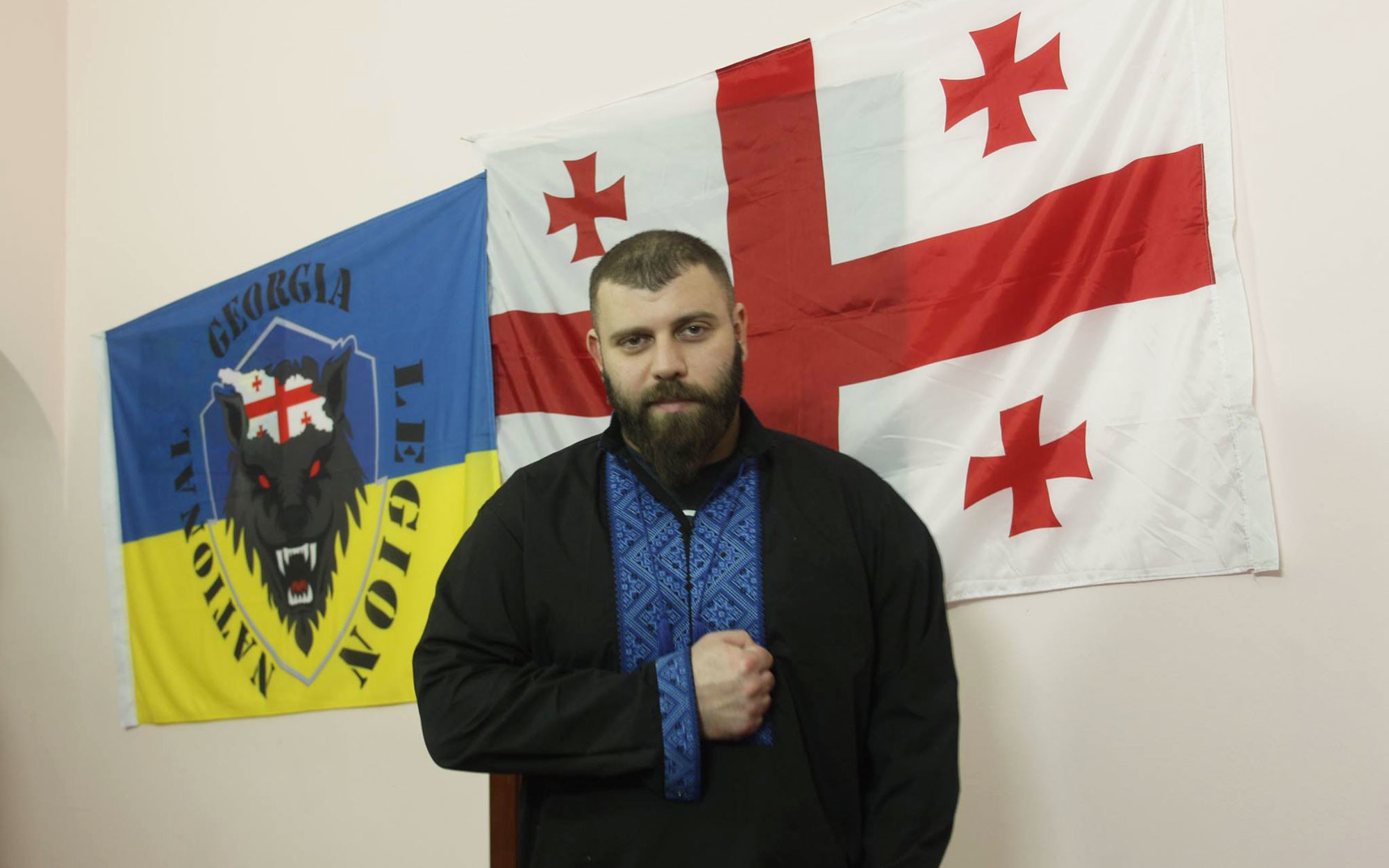
"After several volunteers from Georgia were killed, even more people wanted to help Ukraine"
- The story that Russia is sentencing soldiers from other countries to death in the so-called "DPR" and "LPR" [the self-proclaimed Donetsk and Luhansk People’s Republics] has received extensive publicity in the international media. We know of the case of the British citizens, and there is a story with a Moroccan citizen. Does this have any effect on whether or not people want to join your legion?
- Absolutely not. I will take the example of Georgia. After several volunteers from Georgia were killed, many more people wanted to come and help Ukraine. That is, the reverse process began, and even more Georgians began to understand why they should be here helping Ukraine.
So I would say everything happened the other way around. People began to arrive both from Georgia and from various countries around the world. Even after the capture of the British citizens, I received much more feedback, and a lot of British people came forward to be recruited.
- Can you say how many people there are in the legion now?
- Now there are about a thousand people. These are special groups, these are special operations groups that carry out very specific work along almost the entire [front] line.
- Does this mean you are not in a separate place? Are you spread out all along the front line?
- Yes, we are on different fronts, we never concentrate [our soldiers], because Russia really wants to take a large contingent of the Georgian Legion and kill them. So we’re not going to give them that opportunity. We have our own warfare tactics, and they have worked very well since 24 February.
- Can you tell a little more about the specific tasks that the Georgian Legion is currently carrying out, if that’s possible?
- We are involved in the destruction of command centres, the destruction of Russian logistics. And this is no secret. Our specifics are quite focused and very well planned.
For us, the war started in 2014, and we haven’t seen any changes since then. It's just that Russia has started using large-calibre weapons, missiles and aviation. For us, the military, there is no significant difference.
- Can you give some examples of operations?
- Several villages have been liberated [from the Russian soldiers]. Unfortunately, I can’t talk about the specifics and specific operations now. When the war is over, I think there will be more open information.
- Speaking of the liberated villages, what did you see there?
- It was very hard, because our understanding is that we are here to protect civilians. And when, for example, after the liberation of Kyiv Oblast [from the Russian soldiers], we saw this huge number of children who had been killed and women who had been raped, it left its mark on us.
Although we have been at war for a very long time and nothing surprises us, we realised that there were many people we had not been able to save. This put pressure on the defenders for a while. I remember those days, and it was very difficult.
There were atrocities in the villages that were occupied by Russia, there were mass murders of the civilian population. Of course the civilian population suffered first and foremost, because Russia’s "strategy", if you can call it that, is to kill primarily the civilian population.
They do not really want to meet with the military and engage in equal combat, because, based on Russian psychology, they have always avoided it. They can rape, they can kill children and innocent women. This is the strategy of an uncivilised barbarian country.
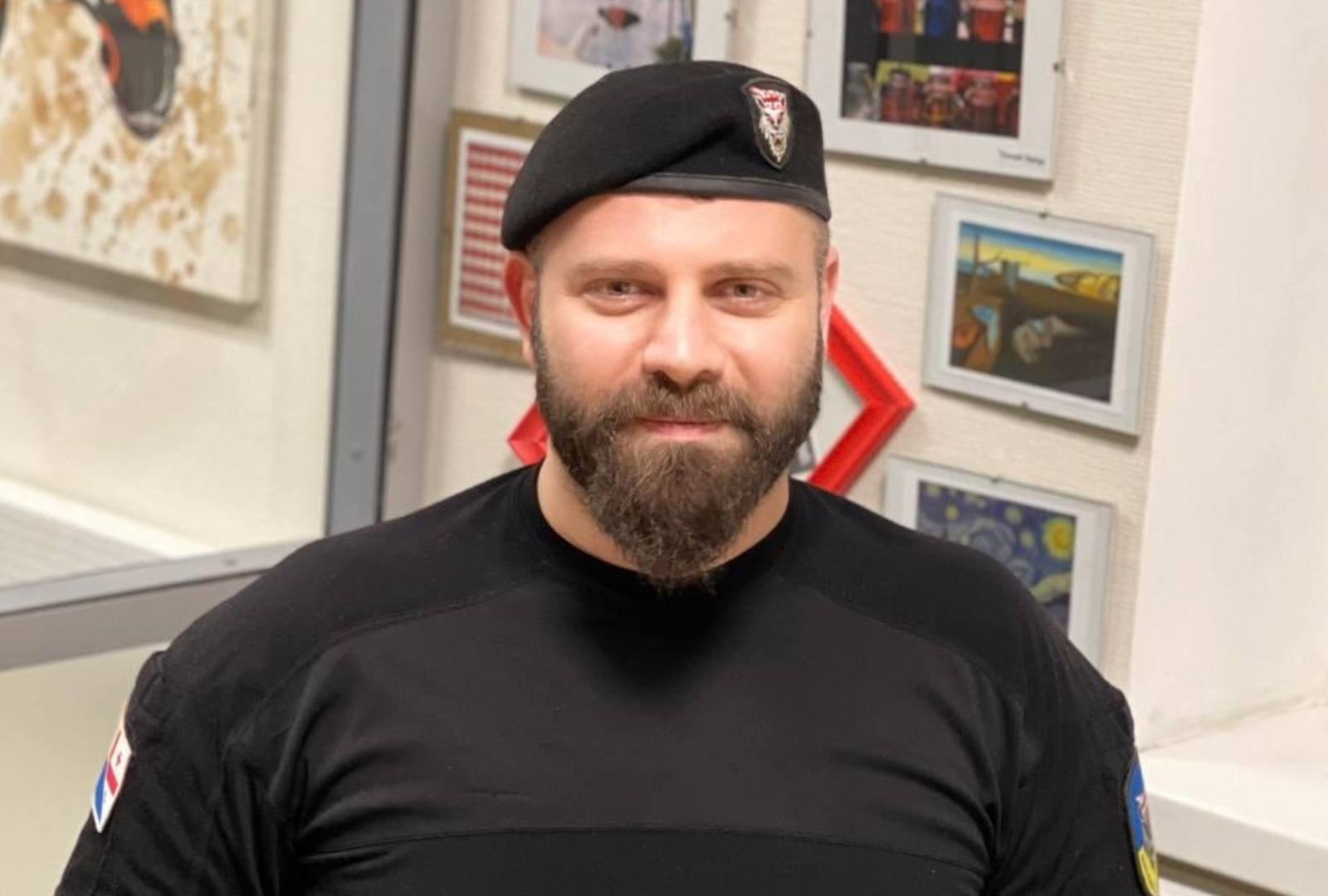
- As an experienced military man, how would you rate the level of training of the Russian military in this campaign?
- We used to have a much higher opinion of them than they have actually turned out to deserve. This is a completely unprepared group of troops, although it is quite large. In terms of professionalism, they are no better than the troops of Somalia or any other country which doesn’t pay much attention to the personnel in their army.
And, thank God, there is corruption in the Russian army. It has helped us a lot and I hope it continues to increase.
So as a military man, I would say... I don't like to underestimate the enemy, but professionally they were not even prepared for what they were going to see in Ukraine. And a lot of them have been killed.
"Ukraine has taken on the role of protecting not only its own democratic values, but also the values of the entire Western world"
- The full-scale war is now in its fifth month. In your opinion, what kind of work can be done to fix mistakes on the Ukrainian side?
- You know, the Ukrainian army was ready for a war like this. Although it is smaller in number than the Russian army, we were prepared for this conflict, unlike the Russians.
And now the entire course of the war depends on obtaining weapons that can change the course of the war today. We expect clearer and faster steps in our direction from the West. Because every day of the Western bureaucracy through which Ukraine is now passing is worth human lives.
I emphasise this every time I talk to the Western media when they ask what Ukraine needs. Ukraine needs quick and timely help. Because every day - maybe it's not visible here, when we’re sitting and talking, but every day - we lose a huge number of civilians who are under attack from very intense artillery fire. The weapons we are waiting for could save the situation today.
- What kind of weapons are they, can you tell us?
- Long-range rocket artillery systems, which we really need now, which are very precise and could make a big difference in our favour.
And air defence systems that can protect our skies so that we won’t see civilian buildings being bombed.
Ukraine has taken on the role of protecting all European countries and democratic values - not only its own, but also those of the entire Western world. And the West needs to really understand this, because this is costing Ukrainians their lives.
- I know that you talk to American politicians in particular regarding the provision of weapons to Ukraine. Can you tell more about what they ask, what they are interested in, what their assessment of the situation is?
- They are willing to talk with ordinary soldiers, which I am, but they are reluctant to talk with politicians. They want specific information about what the Ukrainian army needs today, what is needed in order to change the situation.
I emphasise only one thing in every conversation - Ukraine needs help, and this help must come on time. Because help that does not come on time is no help to Ukraine.
We are dealing with human lives. I made a video (which I really hate doing) of the civilians who died in one day. And I have to show it to every person on whom the transfer of arms to Ukraine depends.
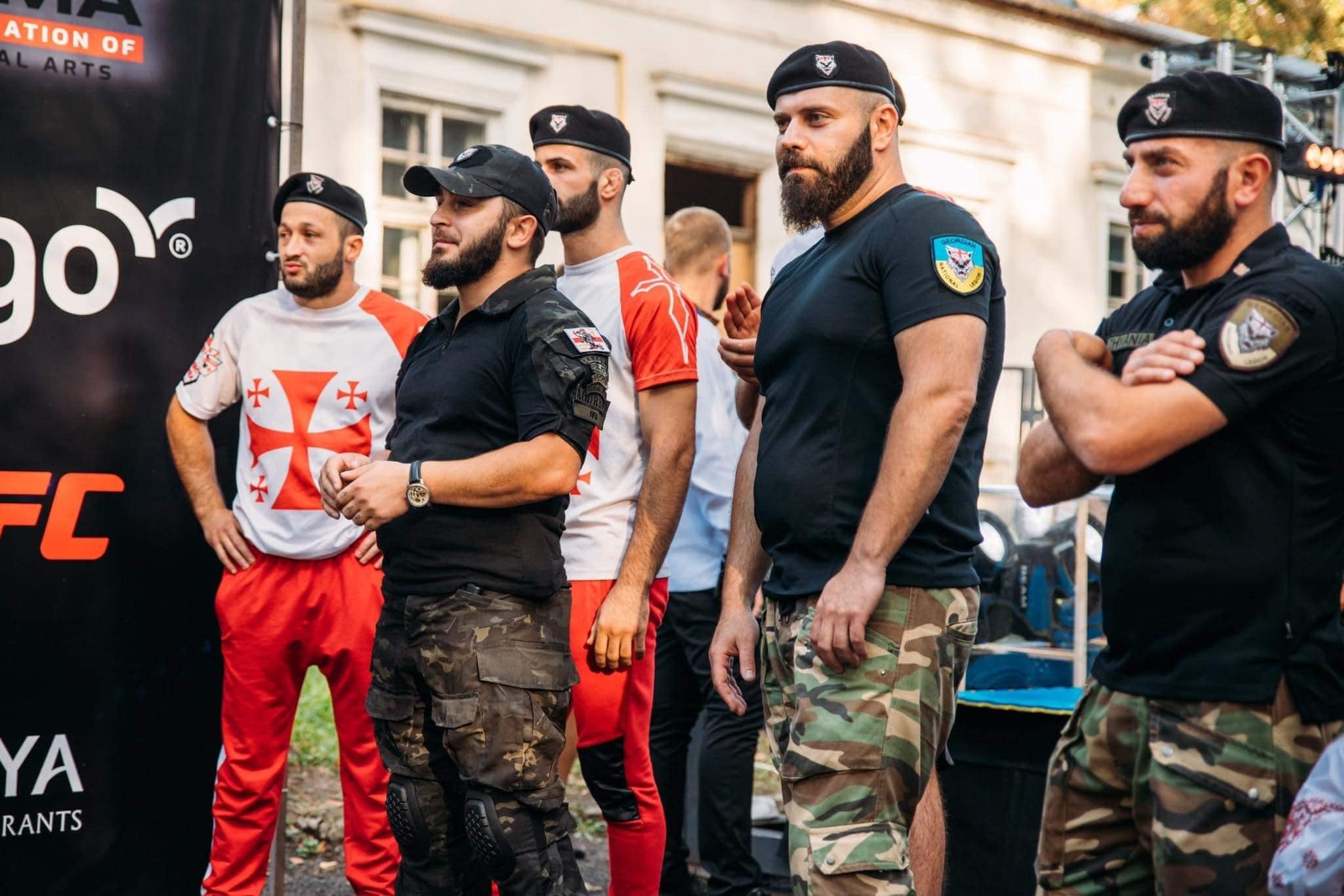
- What else does the Ukrainian army need, besides weapons? What problems have these 4 months of war revealed?
- The Ukrainian army has developed dynamically since 2014, and it has, I would say, established its own standard of combat operations. This is not NATO’s standard, it is not an American or European standard. And I think that when this war is over, there will be a Ukrainian standard.
Because Ukraine has shown that freedom-loving people can become very experienced during 8 years of war and can have their own strategy for military operations. So it is quite clear to everyone that Ukraine has achieved a small revolution.
- We have seen a very unclear position from the Georgian authorities over the last 4 months. How does your Legion respond to this? How do you personally respond? That is, on the one hand, we see support from the Georgian people, but on the other hand, we hear the official position, which is very strongly coordinated with the position of the Russian side.
- Yes. For the time being, there is one fact in Georgia that the Georgian people do not want to see and which is quite difficult to overcome - this is a pro-Russian government whose opinion differs radically from the opinion of the Georgian people, and it is quite loyal to Russia.
Georgia has not joined the sanctions against Russia. We have clearly seen that the Georgian government pretty much obeys the Russian special services and the Russian government. It’s very difficult for me to say this, but that’s the way it is.
However, the opinion of the people is completely different. Based on the influx of volunteers who have come to Ukraine, we can clearly see how much Georgia supports Ukraine.
- Does Georgia support you financially?
- No.
- A week ago, Russian propagandists said they had killed people from the Legion. You denied this. Why would they spread this?
- There is a media war alongside the full-scale war. During the 8 years we have been in Ukraine, Russia has produced more than one documentary specifically targeted against the Georgian Legion. And they were made at a fairly high level.
One of them was made by Italian television on the order of the FSB [Federal Security Service of the Russian Federation]. Another one was made by Israeli television. And Russia itself has made a series of films against the Georgian Legion.
So that didn't surprise us at all. They "destroy" the Georgian Legion almost every second day. They know perfectly well that it is very difficult to do this, even if they use their [military] personnel.
But this propaganda goes on almost every day. Recently they have started saying in the media that they have destroyed part of some Georgian Legion, which is completely false.
- Also, at the beginning of the full-scale invasion, it was reported that you had allegedly told your military not to take prisoners. And you denied that too. Is this also part of the information war?
- I would say that this is more like Russian propaganda. The Russian TV channel which I gave an interview to acted in a slightly "Russian" manner. They cut the interview and did it a little differently - the way they needed it to be.
I said that we do not take prisoners; we hand prisoners over to special services that deal with prisoners of war.
Russian propaganda said that we just kill them. There were some [random] shots of someone killing someone else, and the Russian media presented it as the Georgian Legion shooting Russian prisoners of war.
That’s how they spin it, and they do it every day, just because we have been the largest foreign battalion in Ukraine since 2014. Of course work is being done against us. There are special services that deal with it. Russia has initiated more than one criminal case against me.
- Why do you think such an active information war is being waged against the Georgian Legion?
- We’ve done a pretty good job for Ukraine and a pretty bad job for Russia. We’ve killed a lot of Russian terrorists on the territory of Ukraine. And of course that is unpleasant for them.
We’ll keep doing it no matter what. We will continue to kill absolutely every Russian who has illegally crossed the border of Ukraine.
- What are the most tense areas on the front that you are currently working on?
- The eastern front today is one of the most intense places. Our groups operate there, and they are doing pretty well.
I repeat that we need the help of the West. Ukraine today is like Europe restraining the aggressor during the Second World War, and today only Ukraine is doing it. And President Roosevelt, as I recall, made a statement in the Senate and asked the Senate to give Europe "an arsenal of democracy". And today this arsenal of democracy should be handed over to Ukraine.
Because this is the only country that has accepted the challenge of [standing up to] the biggest terrorist barbarian state. And that is worth the lives of tens of thousands of Ukrainians. And the Lend-Lease that was signed [and the weapons] must reach Ukraine on time.
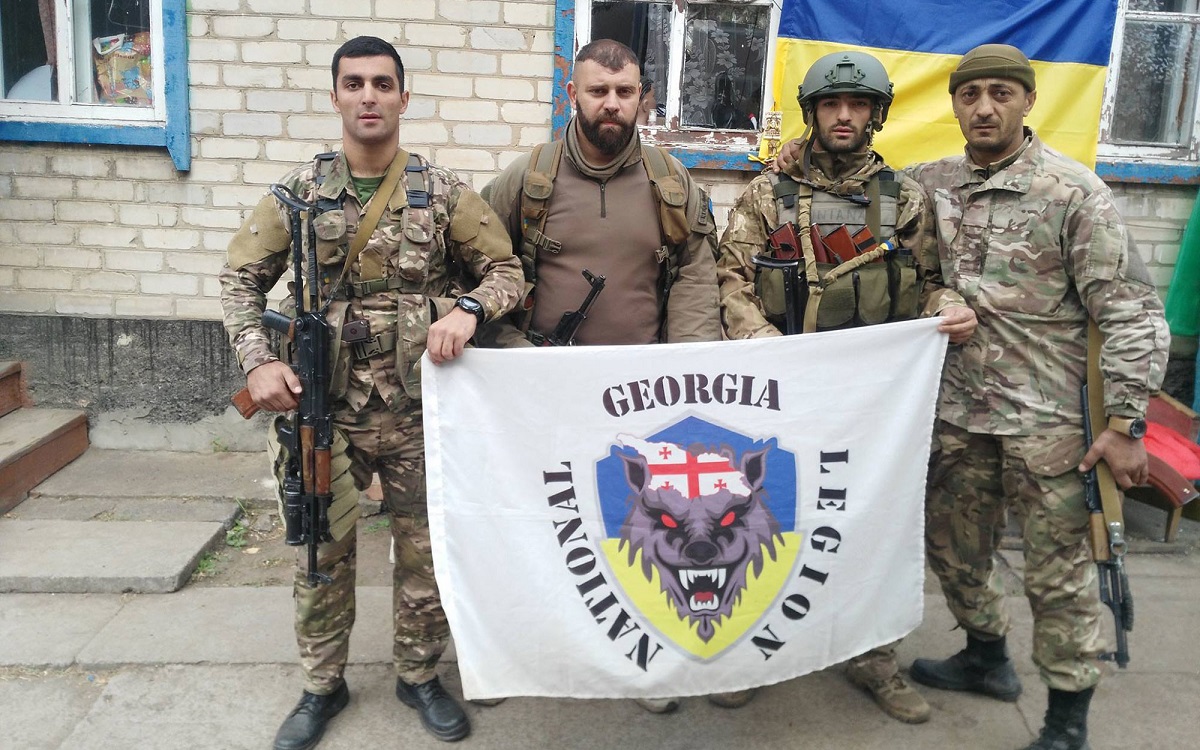
"Today, Ukraine's victory is also Georgia's victory"
- Probably the question that interests everyone, that we ask ourselves every day, reading various forecasts: when might this war be over?
- The whole course of the war depends, again, on how we can cope with the onslaught of shelling that is currently underway. Basically, when we have equipment with which we can respond to Russian artillery fire, that will speed up the end of the war. So everything depends on exactly when Ukraine receives it all.
- What could be considered victory for Ukraine in this war for you personally, and what might victory for Georgia mean for you personally?
- Today, Ukraine's victory is also Georgia's victory.
- Is this the return of territory - the return of Donbas or the return of Crimea [under Ukraine’s control]?
- The only option for ending the war in Ukraine is the de-occupation of absolutely all territories of Ukraine, the de-occupation of Crimea and all the occupied territories.
20% of the territories in Georgia are also occupied by Russia. And Georgia today is completely dependent on the war in Ukraine. On how the war in Ukraine will end.
I think every citizen of Georgia has to understand that his or her place is in Ukraine today, and it’s not just the fate of Ukraine that’s being decided here. It’s not just Ukraine, but many European countries, NATO countries and Georgia in particular as well.
I really want every Georgian to understand that the struggle for Georgia is going on here today, and they should join it.
Sevhil Musaieva, Yevhen Buderatskyi, Ukrainska Pravda